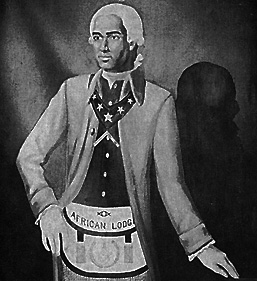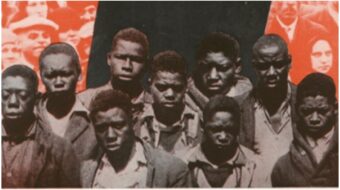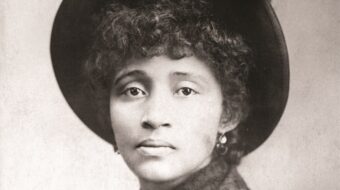
Prince Hall, revolutionary, abolitionist and Masonic leader, died in Boston on Dec. 4, 1807. Born in the British West Indies around 1735, Prince Hall came to Boston during his youth and became one of the most influential members of that city’s free Black community.
At the outbreak of the American Revolution, Hall urged the enlistment of both enslaved and freed blacks in the revolutionary army. Hall felt that involvement of black people in the construction of the new nation would be the first step toward complete freedom for all African Americans. In 1787, Hall organized what is now the oldest Black fraternal organization in America, African Lodge Number 459 of the Freemasons. The organization is known as “Prince Hall Freemasonry,” or “Black Freemasonry.” There he instilled his beliefs in education and support of his fellow man.
Hall tirelessly advocated for equal education and funding for black and white school children, and operated a school in his own home. He also proposed a back-to-Africa movement for freed slaves.
One of America’s first abolitionists, Hall was a primary force in a petition to the Massachusetts House of Representatives to end slavery. He also petitioned against the kidnapping and sale of free blacks into slavery.
An eloquent speaker, Hall said in a speech to the Boston African Masonic Lodge, “My brethren, let us not be cast down under these and many other abuses we at present labour under: for the darkest is before the break of day …”
Prince Hall is buried in Boston’s historic Copp’s Hill Burying Ground along with other notable Bostonians from the colonial era. Thousands of African Americans who lived in the community at the base of Copp’s Hill are also buried there in unmarked graves. A tribute monument in his name was erected on June 24, 1835, next to his grave marker.
Photo: Prince Hall. Wikipedia Commons

MOST POPULAR TODAY

High Court essentially bans demonstrations, freedom of assembly in Deep South

Zionist organizations leading campaign to stop ceasefire resolutions in D.C. area

U.S. imperialism’s ‘ironclad’ support for Israel increases fascist danger at home

UN warns that Israel is still blocking humanitarian aid to Gaza







Comments